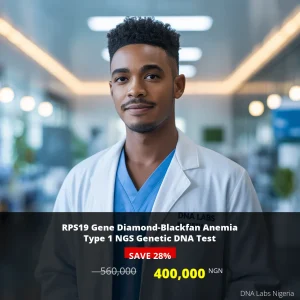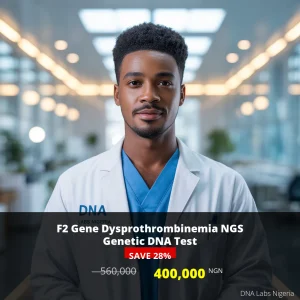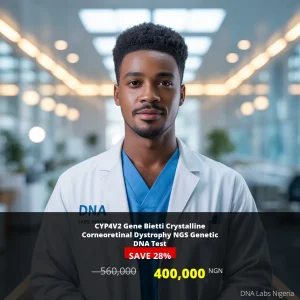RPS7 Gene Diamond-Blackfan Anemia Type 8 NGS Genetic DNA Test
Introduction
The RPS7 Gene Diamond-Blackfan Anemia Type 8 NGS Genetic DNA Test is a cutting-edge diagnostic tool designed to identify mutations in the RPS7 gene, which are associated with Diamond-Blackfan Anemia (DBA). This genetic condition primarily affects the production of red blood cells, leading to anemia and other serious health complications. Early diagnosis through this test is crucial for effective management and treatment of the condition.
What the Test Measures
This test utilizes Next Generation Sequencing (NGS) technology to detect specific mutations in the RPS7 gene. By analyzing the genetic material from a blood sample or extracted DNA, the test provides detailed insights into the genetic factors contributing to DBA.
Who Should Consider This Test
Individuals who exhibit symptoms of anemia, particularly those with a family history of Diamond-Blackfan Anemia, should consider this test. Key symptoms include:
- Severe fatigue
- Pale skin
- Shortness of breath
- Increased heart rate
Additionally, those with risk factors such as a family history of genetic disorders or unexplained anemia should consult their healthcare provider about undergoing this test.
Benefits of Taking the Test
- Accurate diagnosis of genetic predisposition to DBA.
- Guidance for treatment options tailored to the individual’s genetic profile.
- Informed decisions regarding family planning for those with a family history of the disorder.
- Access to genetic counseling for better understanding and management of the condition.
Understanding Your Results
Upon completion of the test, results will indicate whether any mutations in the RPS7 gene were detected. It is essential to discuss these results with a healthcare professional who can provide guidance on the implications and potential next steps in management.
Test Details and Pricing
| Test Name | Discount Price | Regular Price |
|---|---|---|
| RPS7 Gene Diamond-Blackfan Anemia Type 8 NGS Genetic DNA Test | 400,000 NGN | 560,000 NGN |
Turnaround Time: 3 to 4 Weeks
Sample Type: Blood or Extracted DNA or One drop Blood on FTA Card
Pre-Test Instructions: A clinical history of the patient is required, along with a genetic counseling session to create a pedigree chart of family members affected by the RPS7 gene.
Book Your Test Today
Don’t wait to take control of your health. Book the RPS7 Gene Diamond-Blackfan Anemia Type 8 NGS Genetic DNA Test today by calling or WhatsApp us at +2348110567037.







